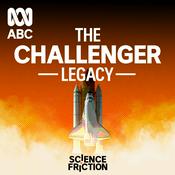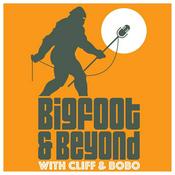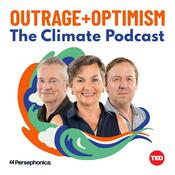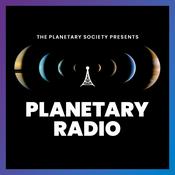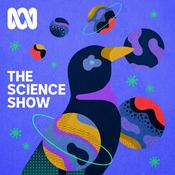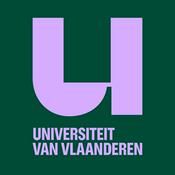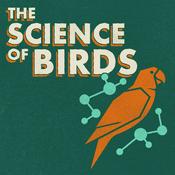593 episodes
- Christopher Beha grew up Catholic in Manhattan, walked away during the New Atheist era, and spent years trying to build a secular worldview sturdy enough to live inside. It didn't hold. So he kept reading—Hume, Kant, Russell, the existentialists—and kept chasing the questions that don't let you sleep: what counts as evidence, what belief even is, and what you do when reason can't answer the things you still have to decide.
In this conversation with Michael Shermer, Beha makes a case that skepticism and belief aren't enemies—and that some debates go nowhere because people are arguing about the "branches" while standing on totally different foundations.
Christopher Beha is the former editor of Harper's Magazine and the author of four previous books, including The Index of Self-Destructive Acts, which was nominated for the 2020 National Book Award. His new book is Why I Am Not an Atheist: The Confessions of a Skeptical Believer. - Why do people risk everything for love but treat sex like it's no big deal? Why is intimacy the most expensive thing in a brothel? And why do jealousy, infidelity, and heartbreak push otherwise rational people into behavior they later can't explain?
Evolutionary biologist and sex researcher Justin Garcia, executive director of the Kinsey Institute and author of The Intimate Animal, joins Michael Shermer for a candid conversation about the biology of sex, the evolutionary logic of pair bonding, and why love—not lust—is what often pushes people past the point of reason.
Justin R. Garcia is an evolutionary biologist and sex researcher. He is Executive Director & Senior Scientist at the Kinsey Institute. He is also the Scientific Advisor to Match Group and Match.com, where he provides expertise to the company's annual Singles in America study. His research has been featured in outlets like The New York Times, The Wall Street Journal, USA Today, TIME, Cosmopolitan, and Vanity Fair. His new book is The Intimate Animal. - In this episode, Michael Shermer walks through the core ideas behind his new book Truth: What It Is, How to Find It, and Why It Still Matters, breaking down how humans confuse meaning with reality, stories with facts, and confidence with correctness.
He also explains why changing your mind is a strength, not a flaw; why extraordinary claims really do require extraordinary evidence; and why "just asking questions" isn't as innocent as it sounds.
BUY THE BOOK
Amazon
Shop Skeptic (autographed)
"Michael Shermer reminds us that the search for truth is not a luxury, but a necessity. This book is a powerful argument for why reality matters and a practical toolkit for how to find it."
―Sabine Hossenfelder
"Michael Shermer has a fine record as a long-time crusader for evidenced rationality. This fascinating and wide-ranging book should further enhance his impact on current controversies."
―Lord Martin Rees
"Michael Shermer is one of our most influential intellectuals. Truth lances the myth of truth's subjectivity, arguing (provocatively) that truth can generate moral absolutes. This stimulating, excellent book inspires you to spread the word that the Earth is not flat and that truth matters."
―Robert Sapolsky
"Michael Shermer has spent his career grappling with the slipperiest word in our language: truth. As someone who knows firsthand what happens when truth gets lost in noise and narrative, I'm grateful for Shermer's clear-eyed insistence that truth is not only real, but necessary."
―Amanda Knox
"Michael Shermer pulls no punches: in a world where opinion too often masquerades as fact, he dismantles delusion and arms us with the tools to meet reality head-on."
―Brian Greene Shermer Says 5: What Went Wrong in Minnesota? Protests, Panic, and Personal Responsibility
26/1/2026 | 28 mins.In this solo episode of The Michael Shermer Show, Michael Shermer responds to the shooting of Alex Pretti, a 37-year-old healthcare worker who was killed by federal immigration agents in Minneapolis during protests over enforcement of immigration law.
As political debate intensifies, Shermer asks a tough question that most discussions are avoiding: What role does personal responsibility play in emotionally charged, high-risk situations?
He separates the facts we can reasonably assert from what remains uncertain and explains why scrutinizing frame-by-frame video misses something essential about how humans behave under stress and fear.
More Science podcasts
Trending Science podcasts
About The Michael Shermer Show
The Michael Shermer Show is a series of long-form conversations between Dr. Michael Shermer and leading scientists, philosophers, historians, scholars, writers and thinkers about the most important issues of our time.
Podcast websiteListen to The Michael Shermer Show, The Infinite Monkey Cage and many other podcasts from around the world with the radio.net app

Get the free radio.net app
- Stations and podcasts to bookmark
- Stream via Wi-Fi or Bluetooth
- Supports Carplay & Android Auto
- Many other app features
Get the free radio.net app
- Stations and podcasts to bookmark
- Stream via Wi-Fi or Bluetooth
- Supports Carplay & Android Auto
- Many other app features


The Michael Shermer Show
Scan code,
download the app,
start listening.
download the app,
start listening.










